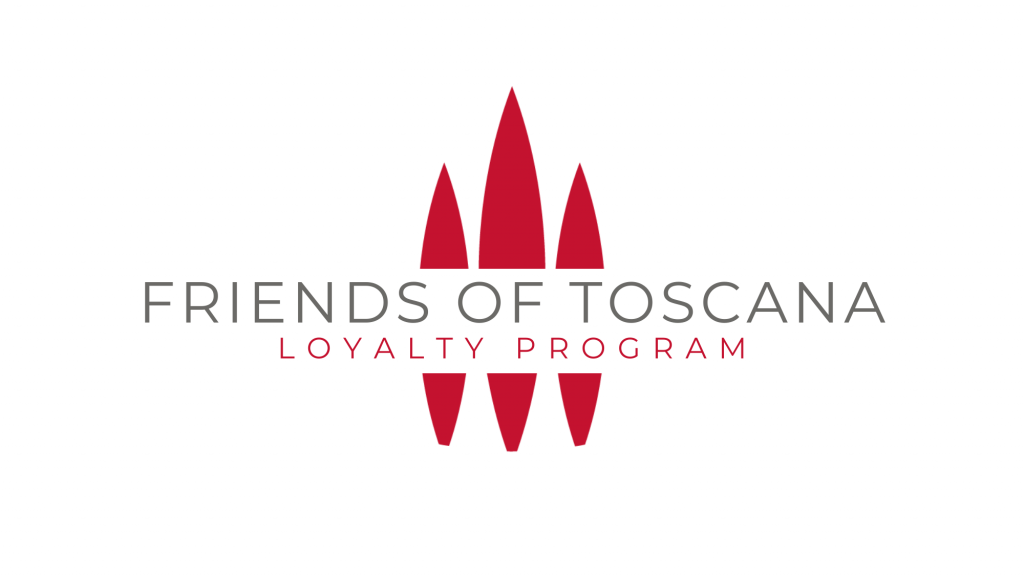
By Jenifer Vogt
“We are resolved to free the human race from the tyranny of poverty and want and to heal and secure our planet. We are determined to take the bold and transformative steps which are urgently needed to shift the world onto a sustainable and resilient path.”
-United Nations 2030 Agenda
Imagine a world without poverty. Would it even be possible?
Toscana Divino Hospitality Group believes in what the United Nations (UN) is doing to make this dream a reality. Though peacekeeping is a large part of their mission, their organization has declared war on poverty and issued a global call-to-arms asking every country and every individual to work towards a set of 17 Sustainable Development Goals (SDGs) that will also eradicate poverty and provide safety and equity for women and girls. These goals were presented in a Resolution that was approved by the General Assembly of the UN in September 2015.
The General Assembly of the UN is one of the six main organs of the organization that are based at UN Headquarters in New York City in the US and which also includes the Security Council, the Economic and Social Council, the Trusteeship Council, and the Secretariat. The final organ, the International Court of Justice, is located at The Hague, a city that is the capitol of the Netherlands.
Poverty is a worldwide problem that is not simply about not having enough food, shelter, or money. Impoverished people also experience social exclusion, and lack of access to education and adequate or healthcare. These situations exacerbate their rates of addiction and mental illness, too. Poverty can also become cyclical. It becomes an ingrained mindset and set of behaviors that are passed down from generation-to-generation. It’s not that poor people are unmotivated or unwilling to change. It’s that they’ve never been shown any other way to live. This is why people often use the term, “break the cycle,” of poverty.

Breaking the cycle of poverty means getting to the root of a complicated problem with no easy solution. The cause of poverty can’t be pinned on one government or one specific problem, such as hunger. Rather, it’s a global and systemic condition. Ten percent of the world’s population live in extreme poverty. While philanthropists and charitable organizations donate money and in-kind goods towards one cause, it’s never enough. In the same way that a band-ad won’t cure cancer, unless all the root causes are addressed and the entire system changes, people won’t emerge from poverty.
What the UN has done to root out poverty is nothing short of miraculous. They’ve surveyed and documented a spectrum of issues that result in poverty, and they’ve linked these issues and sustainable development. What they’ve shown, in essence, is how we’re all inextricably linked. We help each other by helping ourselves. Individuals who aspire towards personally adopting the UN’s SDGs are directly contributing to the eradication of poverty in remote regions of the world they may never visit. When those individuals enlist the commitment of their communities, workplaces, and local municipalities they broaden their impact.
The UN has given the world a roadmap to follow to eradicate poverty and build a sustainable future. Toscana Divino Hospitality Group would like to support its vision by sharing information with their clients. They also share the UN’s vision for sustainable development with their entire team and it influences how they operate their business by realizing and aspiring towards more sustainability at all levels of their operations.
The UN’s 17 Sustainable Development Goals
In October of 2015 the UN’s finalized and printed 35-page resolution, titled, Transforming Our World: the 2030 Agenda for Sustainable Development, was distributed to the Assembly. This agenda is to be realized by 2030 by integrating and making inseparable three key dimensions of sustainability: the economic, the social and the environmental.
Here are the 17 Sustainable Development Goals (SDGs) that, together, present an idealized version of a possible future world where no person is hungry and individuals adopt patterns of behavior, (such as committing to their own wellbeing), and ideologies, (such as inclusivity), that benefit the greater good.
(Please note: When you click on a specific goal it will take you to the UN’s website for additional information about that goal, such as downloadable reports and supporting events.)
We’re All Stakeholders in the UN’s 2030 Vision

The UN’s 2030 Agenda is daunting. It’s easy to look at a list of this magnitude and feel overwhelmed. It’s easy to think that you’re just one person who can’t make much difference. But you can. Each of us can. And you must. You must because this is not the UN’s list. Don’t consider it as remote and separate from you. This list belongs to humanity. This is our list. We each have a personal stake in the outcome of the UN’s 2030 Agenda. We’re all stakeholders and what’s at stake is our future.
You can contribute towards the realization of the UN’s SDGs more than you might think. At the personal level, a good place to start is with the third goal. This goal addresses health and well-being. The difference between the two is that health is a state of being. Whereas, well-being, is a manner of living. In other words, adopting a healthy lifestyle. You can take personal responsibility for your health and well-being.
Food is the foundation of good health. One simple way to eat healthier is to adopt the Mediterranean Diet , which in 2023 was named the healthiest diet in the world by US News & World Report. This diet not only promotes good health, but it’s good for the planet. The reason for this is that this diet is comprised mostly of olive oil, vegetables, fruits, and grains. So, it’s also been named the world’s best plant-based diet. Plant-based diets promote a strong immune system.
The Mediterranean Diet is a whole-foods diet, too. This means that consuming overly processed foods is frowned upon. In their natural state, fruits and vegetables are rich in phytonutrients, such as antioxidants. Whole grains, such as brown rice or quinoa, if consumed regularly, can reduce your risk of heart disease and stroke. They also contain antioxidants and are high in fiber.
People following the Mediterranean Diet eat fish, meat, and dairy products. They just don’t eat the large quantity consumed by the average American. In the Mediterranean Diet, meat, and animal products, in general, are additions to the meal, rather than the main dish. Meat is cooked in a way that accentuates its flavor by adding olive oil and herbs and spices.
When people consume less meat, it helps the planet. It eases the pressure on natural resources, such as the forests and land that are used for animal feed. It reduces greenhouse gas admissions. This helps to keep the earth’s natural ecosystem in balance and protects biodiversity. This helps poor people in third-world countries because they bear the harshest burdens of climate change.
Christina Chan, director of the World Resource Institute’s Climate Resilience Practice, explained this:
“The world’s poorest communities often live on the most fragile land, and they are often politically, socially, and economically marginalized, making them especially vulnerable to the impacts of climate change. More frequent and intense storms, flooding, drought, and changes in rainfall patterns are already impacting these communities, making it difficult for them to secure decent livelihoods.”
In addition to transitioning to a Mediterranean Diet, you can further contribute to the UN’s 2030 agenda by being mindful about where you shop for food. Studies have shown that the industrialized American food system that produces the products we find in big grocery chains damages the earth.
Gas-reliant mechanized farming equipment. Debates about whether growth hormones are safe. The perils of fertilizers. A host of other issues and offenses. If you want to understand more about this issue, read Michael Pollan’s book, The Omnivore’s Dilemma.
The bottom line is that a simple decision to buy your produce at the local farmer’s market, rather than the supermarket, can go a long way in protecting the planet. By doing so, you’re also working on the UN’s second SDG because local farmers, generally, use earth-friendlier and more sustainable production methods. Food that is sourced locally also contains more vital nutrients that will diminish in foods that are shipped from far away.
At this point, you can see the big-picture link between your decision to be healthy and the impact that decision has on the UN’s 2030 Agenda. Change really can happen at the individual level. Just like what Gandhi said, “Be the change you wish to see in the world.”
10 Ways Restaurants Can Support the UN’s Agenda
There are many ways that Individual restaurants and restaurant groups like Toscana Divino Hospitality Group (TDHG), can adopt and integrate the UN’s Sustainable Development Goals in their business operations. Here are ten ideas to consider.
- Minimize Food Waste. More restaurants could eliminate super-sized meal portions that provide enough food for a week, rather than for just one meal. Leftovers often end up in the garbage. The restaurants that do this often source lower-quality food. The customer thinks they’re getting a great deal. The reality is quite different. They’re eating unhealthy food that’s produced and delivered in ways that harm the planet. Restaurants that supersize contribute to America’s obesity epidemic. Authentic Italian restaurants like, Toscana Divino, do it right. They provide diners with healthy, high-quality food in normal portion sizes. Restaurants can also partner with local farms and service providers to start a composting program.
- Prioritize Diversity, Equity & Inclusion. The Hospitality industry still “has much further headway to make in the area of diversity, equity and inclusion across all job levels,” according to a workplace gender diversity study released in December 2022 by the Cornell Peter and Stephanie Nolan School of Hotel Administration’s Center for Hospitality Research in partnership with the organizations Women Leading Travel & Hospitality and NAPCO.
- Practice Pay Equity. There’s still a substantive gender pay gap in the Hospitality industry according to a report released in 2019, shortly before the Covid crisis, by Price Waterhouse Coopers, Women in Hospitality and UK Hospitality. The Covid lockdown made it worse. The World Economic Forum’s 2021 Global Gender Gap report found that the impact of the COVID-19 pandemic increased the gender gap by a generation from 99.5 years to 135.6 years.
- Source From Local Growers. Restaurants can source from local farms and artisanal producers. By doing this they not only protect biodiversity and contribute to the reduction of greenhouse gas emissions, but they also support the local economy. This is the premise of the Farm-to-Table movement. This also eases food waste and, as mentioned earlier, there are health benefits to eating local.
- Offer More Plant-Based Options. Restaurants can gently encourage diners to eat healthier by providing more palatable plant-based menu options. In the past, plant-based meals were separated and given their own category. With a health-first approach, it doesn’t have to be like that. A restaurant can adopt the Mediterranean diet and simply expand their plant-based options while reducing their main-meal meat dishes. The Toscana Divino Hospitality Group family of restaurants offers diners the Italian Mediterranean Diet, where “vegetables are the protagonists of every meal.”
- Support Local Charities. We’ve touched on why poverty can only be eradicated if it is measured and addressed as a global and systemic issue. However, this doesn’t mean you need to stop partnering with or donating to local charities that provide food to the hungry or educational scholarships. In these situations, the starfish theory still applies. While you can’t help everyone, you will have a big impact on those you do.
- Digitally Share the 17 Goals. Your organization can share the commitment you’ve made to support the UN’s 2030 Agenda by displaying the 17 Sustainable Development Goals on your website. You can highlight, call out and write about the goals on your blog and share your efforts on your social media channels, too. The more you publicize your efforts to work towards these goals, the more you can inspire your clients and your community to do the same.
- Train & Educate the Team. The UN’s 2030 Agenda can be introduced during the training you do with new employees. The 17 goals can be included in your new employee training packet. You can also laminate the goals and distribute them to existing employees. What you want is for your employees to understand that you’ve made the UN Agenda part of the way you operate. You want your employees to connect-the-dots of how their actions can positively impact the future. As public-facing brand ambassadors, you want your servers to be knowledgeable enough to explain your philosophy to your customers. This could be as simple as pointing out that your ingredients are sourced locally or explaining how equipment you’ve purchased aids with sustainability.
- Create a Sustainable Environment. Periodically audit your operations for ways to improve sustainability. Once you’ve trained your team, they can identify unnecessary waste. They can monitor composting procedures. You can also invest in more sustainable equipment in your kitchen. There are many companies that produce machinery that is specifically made to minimize food waste, reduce energy consumption, and recycle what can be. This type of equipment can also yield significant cost savings over time.
- Create Sustainability Awards. Incentivize your team to support your restaurant’s commitment to the UN 2030 Agenda by creating a rewards program. You could award one employee “Sustainability Champion of the Month” and give them a cash reward. Or you could call-out multiple employees who make the effort to keep your restaurant sustainable and ask them to mentor other employees towards the same. The point is to recognize and reward the behavior that makes your restaurant a leader in the arena of sustainability.
A Mindful Approach
Toscana Divino Hospitality Group takes the UN 2030 Agenda so seriously that they’ve integrated the philosophy that guides the 17 Sustainable Development Goals into Operations at both of their restaurants: Ironside Pizza and Toscana Divino. They remain committed to leading the way toward more charitable, sustainable, and equitable practices within the Hospitality industry and within their homes and community.



























